"The production of jams seems like a no-brainer, but this is not the case at all. The transformation process has a lot to do with consumers' health, like avoid overcooking the fruit, for example, and using the right minimum quantities of sugar ensures that the jam is stable and safe over time," said Federico Fracassetti and Valentina Ambrosini, co-owners of the Marledy brand.
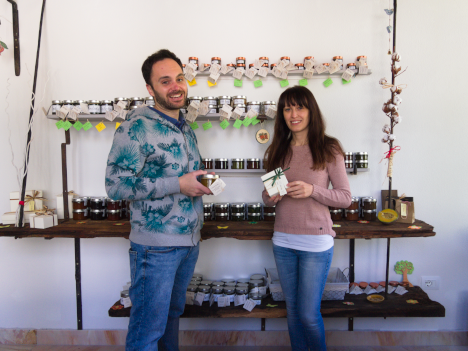 In the photo, Federico Fracassetti and Valentina Ambrosini co-owners of the brand Marledy.
In the photo, Federico Fracassetti and Valentina Ambrosini co-owners of the brand Marledy.
Marledy is the brand of the Italian agricultural company Ardemagni. It is the result of Valentina Ambrosini's diverse background acquired in the rural countryside of her mother, Silvia, who has been cultivating vegetables and fruit trees, including peaches, figs and plums, for over forty years in the terraced fields of Cercino (in the province of Sondrio, Lombardy), in Valtellina (one of the first villages on the side of the Rhaetian Alps).
Growing up in close contact with nature, Valentina became interested in pomegranates, a fruit with excellent health properties, but not cultivated in Valtellina. Thanks to her college friendship with Federico Fracassetti, a new team project began, which included, among other activities, the transformation of this fruit. This was possible also thanks to the know-how and background that Federico Fracassetti achieved while in France and Spain.
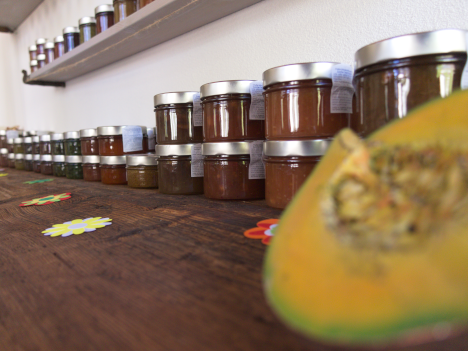
"Italy is not very fond of jam, unlike France, where it is a cult product and is never missing from the pantry. I think it is a cultural and traditional reason. In Italy, the campaign against the use of sugar has slowed down the market in favor of fruit compotes. Before bottling jams, marmalades and jellies, it is important to measure the final Brix level in order to obtain a proper preservation and a more or less density of the final product."
The minimum sugar content in jams is 45 degrees brix per 100 grams of the final product. The maximum is 65 degrees brix, in order to obtain a shelf life of three years. But everything depends on the ripeness of the fruit. This is not true for vegetable-based jams, as they contain few sugars and therefore it is necessary to add higher quantities of sugar.
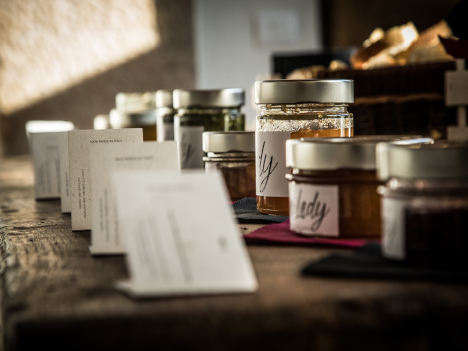
Marledy uses eggplants as a basic ingredient for the preparation of fruit and vegetable mixes, as they do not have a strong flavor. The products that contain eggplant are available in the following flavors: eggplant and pumpkin; eggplant and zucchini; eggplant and ginger; eggplant and chocolate; eggplant and mint; bell bell pepper; onion, fennel and carrot; as well as mixed eggplant and strawberry. These references are available in 250 grams, 185 g or in two single portions of 55 g each.
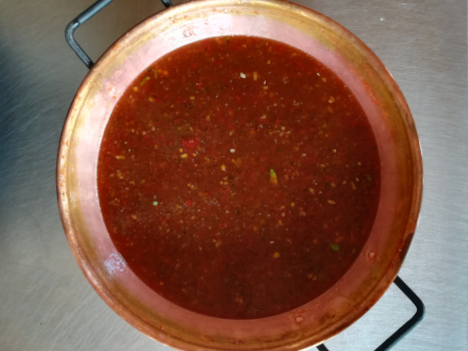
"To obtain an excellent jam it is important to not only harvest the product freshly, but also to optimally calibrate the temperature and the extraction of the water contained in the fruit, in order to preserve it without overcooking it. This is done by using the under vacuum technique with specific machines or by using - as we do - copper boilers, because it is the best heat conductor. Moreover, copper ions help the jelling process of foods without the use of pectin".
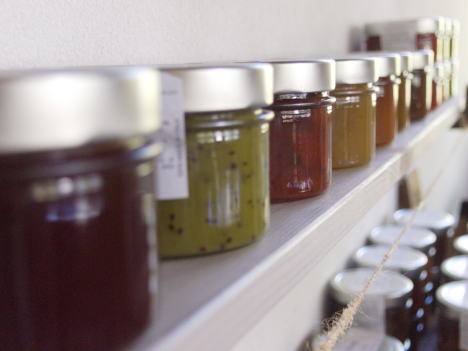
One of the most important goals pursued by Marledy, is the production of a jam based on pomegranates. It is a goal strongly wanted by Valentina Ambrosini who, four years ago, planted about 150 pomegranate plants in the lower Valtellina, in a sunny position that receives light even in winter.
"Our pomegranate trees will enter into full production in a few years. We have experimented with medium- late pomegranate varieties including Dente di Cavallo and Acco, but also Wonderful. These are resistant varieties which are also suitable in particular areas where an intensive cultivation is not possible. These are fruits that, for their healthy qualities, fulfil the interests of consumers and, if there is a case of surplus production, we can also send that to the fresh market".
For more information: 
Società Agricola Ardemagni
Via Mulada, snc
Fraz. Piussogno
23016 Cercino (SO)
+39 331 2235237
societagricolardemagni@gmail.com
www.marlady.it
